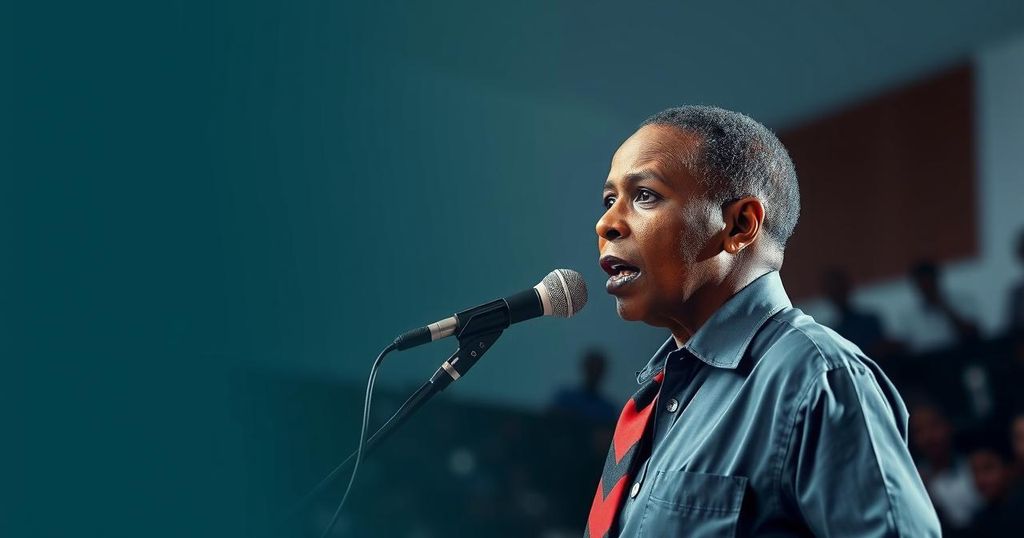Botswana Elections: BDP Seeks Another Term Amid Economic Challenges

Botswana is set to hold elections on Wednesday, with the ruling Botswana Democratic Party (BDP) striving for another five-year term against economic challenges and climate change. Incumbent President Mokgweetsi Masisi faces competition from several challengers, with tensions expected to resurface between him and former President Ian Khama. The election outcome will shape Botswana’s economic and political future amid rising unemployment and calls for diversification.
On Wednesday, residents of Botswana are proceeding to the polls as the ruling Botswana Democratic Party (BDP) aspires to secure another five-year term. Notably, the BDP has held power for an impressive 58 years since Botswana gained independence from the United Kingdom in 1966, making it one of Africa’s longest-serving political parties. However, the party faces significant challenges, particularly a struggling economy and the adverse impacts of climate change. This one-day electoral process will determine the composition of the parliament, which is responsible for electing the president subsequently. Incumbent President Mokgweetsi Masisi, who has previously served as a high school teacher and worked with the United Nations, is vying for his second and final term. Botswana has historically been recognized for its robust political stability and economic success; however, a recent decline in global diamond demand and an escalating cost of living have contributed to soaring unemployment rates, now standing at 27%. In response to these economic hardships, the BDP has pledged to diversify its economy, which has become overly reliant on diamond exports. The country’s geographical positioning further complicates matters, as it faces the increasing threat of climate change, particularly worsening desertification in sub-Saharan Africa. President Masisi’s primary competitors include Duma Boko from the Umbrella for Democratic Change party, Dumelang Saleshando of the Botswana Congress Party, and Mephato Reatile representing the Botswana Patriotic Front. This election may also reignite tensions between Masisi and former President Ian Khama, who has accused Masisi of authoritarian behavior. Khama, who returned from self-imposed exile in South Africa, has alleged that the legal charges against him, which include illegal possession of a firearm and receiving stolen property, are politically motivated. Vote counting is anticipated to commence shortly after the polling concludes on Wednesday.
Botswana’s political landscape has been characterized by a long-standing single-party dominance, primarily led by the Botswana Democratic Party (BDP). Established shortly after independence, the BDP has played a crucial role in shaping the nation’s policies and economic direction. Botswana has traditionally enjoyed political stability coupled with economic prosperity, largely due to its diamond wealth. However, recent economic downturns and global shifts in demand for diamonds have posed significant challenges to the country’s economy. Coupled with climate change, these challenges have raised concerns about future sustainability. The upcoming election not only reflects the people’s attitudes towards governance and economic management but also serves as a platform for opposing political ideologies and figures, particularly in light of the tensions between the current administration and former leaders.
In summary, the upcoming election in Botswana bears significant implications for the country’s political and economic direction. The ruling BDP aims to maintain its long-standing hold on power amid considerable economic challenges and climate concerns. Voters face the critical task of selecting representatives who will navigate Botswana through these turbulent times, while also addressing internal political rivalries that may influence governance in the years to come.
Original Source: www.namibian.com.na







